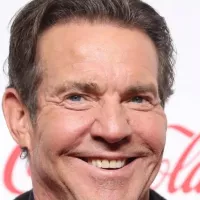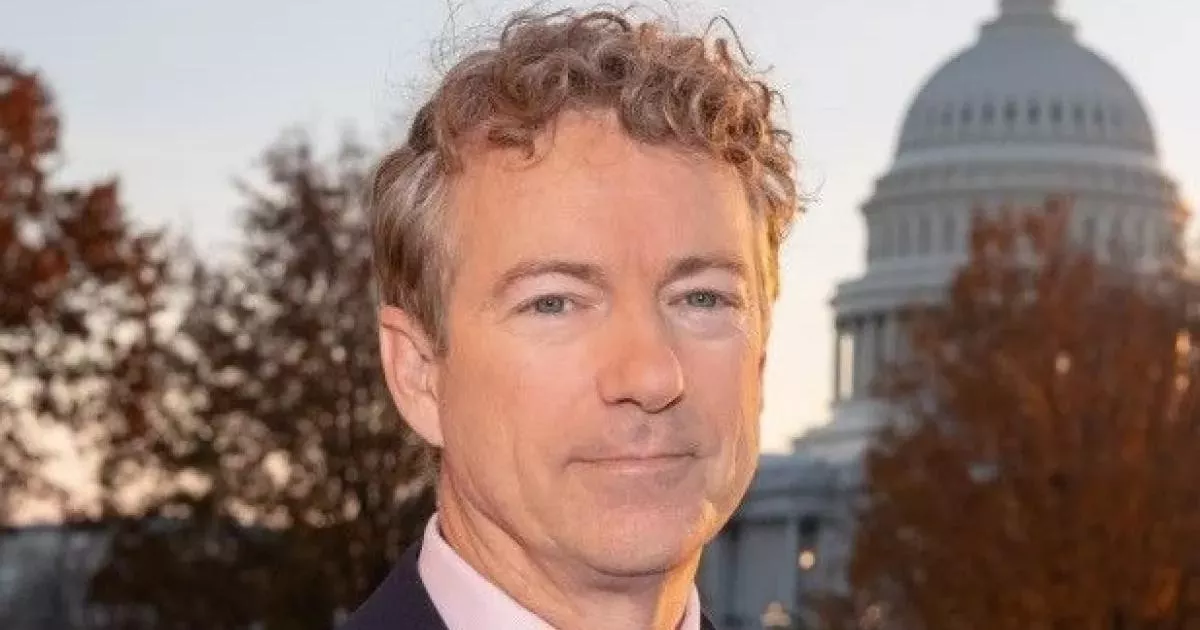Discover the career path of Rand Paul, from the first major opportunity to industry-changing achievements.
Rand Paul is an American politician and ophthalmologist. He has served as the junior United States Senator from Kentucky since 2011. As a member of the Republican Party, Paul is currently the chair of the Senate Homeland Security Committee. He is known for his libertarian-leaning views within the Republican party, advocating for limited government, lower taxes, and individual liberties. Paul has been involved in various political debates and legislative efforts, often focusing on issues related to fiscal conservatism, foreign policy restraint, and civil liberties.
1964: Civil Rights Act Controversy
During the 2010 campaign, Rand Paul's comments on the Civil Rights Act of 1964 stirred controversy, with Paul questioning the constitutionality of Title II of the Act.
1976: Attended Republican National Convention
In 1976, Rand Paul attended the Republican National Convention, where his father headed Ronald Reagan's Texas delegation. His father, Ron Paul, was elected to the United States House of Representatives that same year.
1984: Aided Father's Campaign
In 1984, Rand Paul took a semester off to aid his father's campaign in the Republican primary for the 1984 U.S. Senate election in Texas.
1988: Earned Doctor of Medicine Degree
In 1988, Rand Paul earned a Doctor of Medicine degree from Duke University School of Medicine.
1991: Founded North Carolina Taxpayers Union
In 1991, Rand Paul founded the North Carolina Taxpayers Union.
June 1993: Medical License Valid
Since June 1993, Rand Paul's medical license has been valid continuously, with no board actions.
1993: Completed Residency
In 1993, Rand Paul completed his residency.
1993: Practicing Ophthalmologist
In 1993, Rand Paul started working as a practicing ophthalmologist in Bowling Green, Kentucky.
1994: Founded Kentucky Taxpayers United
In 1994, Rand Paul founded the anti-tax organization Kentucky Taxpayers United (KTU), and was chair of the organization from its inception.
1995: ABO Certification
From 1995 to 2005, Rand Paul maintained his own American Board of Ophthalmology (ABO) certification.
1995: Certified by American Board of Ophthalmology
In 1995, Rand Paul was certified to practice by the American Board of Ophthalmology (ABO).
1996: Managed Father's Congressional Campaign
In 1996, Rand Paul managed his father's successful congressional campaign, in which the elder Paul returned to the House after a twelve-year absence.
1998: Joined Graves Gilbert Clinic
In 1998, Rand Paul joined a private medical group practice, the Graves Gilbert Clinic, in Bowling Green, for 10 years.
1999: Incorporated National Board of Ophthalmology
In 1999, Rand Paul incorporated the National Board of Ophthalmology (NBO) to offer an alternative certification system.
2000: KTU Dissolved
In 2000, Kentucky Taxpayers United (KTU) had been legally dissolved by the state after failing to file registration documents.
2002: KTU Ratings Stopped
In 2010, The Wall Street Journal reported that KTU had stopped issuing its ratings and report cards after 2002.
2005: ABO Certification
From 1995 to 2005, Rand Paul maintained his own American Board of Ophthalmology (ABO) certification.
2008: Formed Private Practice
In 2008, Rand Paul formed his own private practice across the street from John Downing, his former employer at Downing McPeak.
2008: Grayson's Clinton Vote
Paul ran an ad in February that made an issue out of Grayson's 2008 admission that he voted for Bill Clinton when he was 20 years old.
2008: Campagined for Father
Throughout the elder Paul's run in the 2008 presidential election, Rand campaigned door-to-door in New Hampshire and spoke in Boston at a fundraising rally for his father on the 234th anniversary of the Boston Tea Party.
September 2009: KTU Ratings Claim
In September 2009, Rand Paul told a Kentucky television audience that KTU published ratings each year on state legislators' tax positions.
2009: Founded Southern Kentucky Lions Eye Clinic
In 2009, as a member of the Bowling Green Noon Lions Club, Rand Paul founded the Southern Kentucky Lions Eye Clinic to help provide eye surgery and exams for those who cannot afford to pay.
2009: Potential Candidacy Discussed
In early 2009, some supporters of his father sought to draft Rand Paul in a bid to replace Jim Bunning as U.S. senator. On April 15, Rand Paul gave his first political speech as a potential candidate at a Tea Party rally in Bowling Green.
April 26, 2010: Dobson Endorsed Grayson
On April 26, 2010, James Dobson endorsed Grayson based on the advice of "senior members of the GOP".
2010: Elected to the U.S. Senate
In 2010, Rand Paul was elected to the U.S. Senate.
2010: Report on KTU
In 2010, The Wall Street Journal reported that KTU had stopped issuing its ratings and report cards after 2002.
2010: General Election Contributions
In the 2010 general election, Rand Paul's campaign attracted $8.5 million in contributions from outside groups, with $6 million spent to help Paul.
2010: Hiring of Jesse Benton
Mitch McConnell hired Paul's 2010 campaign manager, Jesse Benton, as his own campaign manager.
January 5, 2011: Sworn into Senate
On January 5, 2011, Rand Paul was sworn in as a U.S. Senator, along with his father, who was simultaneously in the House of Representatives.
April 2011: Paul Files to Run for Re-election
In April 2011, Rand Paul filed to run for re-election to his Senate seat in 2016.
2011: Became Senator
In 2011, Rand Paul became the junior United States senator from Kentucky. He is a member of the Republican Party.
2011: Co-Authored "The Tea Party Goes to Washington"
In 2011, Rand Paul co-authored the book "The Tea Party Goes to Washington".
2011: NBO Dissolved Again
In 2011, Rand Paul's recreated National Board of Ophthalmology (NBO) was again dissolved.
2011: Proposed Defense Spending Budget
Shortly after being elected in 2011, Rand Paul proposed a budget specifying $542 billion in defense spending.
January 2013: Paul Considered Potential Presidential Candidate
Since at least January 2013, Rand Paul was considered a potential candidate for the Republican nomination for the presidency of the United States.
February 13, 2013: Paul Delivers Tea Party Response to Obama's State of the Union
On February 13, 2013, Rand Paul delivered the Tea Party response to President Barack Obama's State of the Union address, while Marco Rubio gave the official Republican response.
March 2013: Threatened Filibuster and Endorsement of Mitch McConnell
In March 2013, Rand Paul, along with Senators Ted Cruz and Mike Lee, threatened a filibuster opposing any legislative proposals to expand federal gun control measures. Also in March 2013, Paul endorsed fellow Kentucky Republican Senator Mitch McConnell's 2014 re-election campaign.
April 11, 2013: Filibuster Opposing Federal Gun Control Measures
On April 11, 2013, Rand Paul, along with Senators Ted Cruz and Mike Lee, attempted a filibuster opposing any legislative proposals to expand federal gun control measures. The filibuster was dismissed by cloture in a 68–31 vote.
2013: Introduced Industrial Hemp Farming Act
In 2013, Rand Paul introduced the Industrial Hemp Farming Act to legalize industrial hemp cultivation at the federal level.
2013: Introduced the Justice Safety Valve Act
In 2013, Rand Paul introduced the Justice Safety Valve Act to provide judges with greater sentencing flexibility.
February 2014: Filed Lawsuit Against Federal Government
In February 2014, Rand Paul joined FreedomWorks in filing a class action lawsuit charging that the federal government's bulk collection of Americans' phone records metadata is a violation of the Fourth Amendment of the U.S. Constitution.
March 2014: Kentucky Senate Passes Bill Allowing Paul to Run for Both Offices
In March 2014, the Republican-controlled Kentucky Senate passed a bill that would allow Rand Paul to run for both his Senate seat and for president, but the Democratic-controlled Kentucky House of Representatives declined to take it up.
April 2014: Paul Insists GOP Broaden Appeal
In a speech at the GOP Freedom Summit in April 2014, Rand Paul insisted that the GOP has to broaden its appeal in order to grow as a party.
2014: Paul Launches "Hillary's Losers" Social Media Campaign
During the 2014 election, Rand Paul launched a social media campaign titled "Hillary's Losers" which was meant to highlight many of the Democratic candidates that lost their bids for the U.S. Senate despite endorsements from Hillary Clinton.
2014: Co-sponsored the Rohrabacher–Farr amendment
In 2014, Paul co-sponsored the Rohrabacher–Farr amendment concerning cannabis legislation.
2014: Gave Speech at UC Berkeley on NSA Privacy
In 2014, Rand Paul gave a speech at the University of California, Berkeley, titled "The N.S.A. vs. Your Privacy", criticizing warrantless surveillance.
2014: Introduced Multiple Criminal Justice Reform Acts
In 2014, Rand Paul introduced the Civil Rights Voting Restoration Act, the REDEEM Act, the FAIR Act, and the RESET Act, all aimed at criminal justice reform.
2014: Paul Spent Campaign Money in Legislative Elections
In 2014, Rand Paul spent his own campaign money in the legislative elections, helping Republican candidates for the State House in the hopes of flipping the chamber.
2014: Endorsement of Mitch McConnell Re-election
In March 2013, Rand Paul endorsed fellow Kentucky Republican Senator Mitch McConnell's 2014 re-election campaign.
February 2, 2015: Remarks on vaccinations
On February 2, 2015, Rand Paul told conservative radio host Laura Ingraham that "most" vaccinations "ought be voluntary", generating controversy around state mandates. Later that day, in an interview with CNBC, Paul clarified his statement, saying that vaccines are a good thing, but that parents should have some input and freedom in the decision.
April 7, 2015: Paul Officially Announces Presidential Candidacy
On April 7, 2015, Rand Paul officially announced his presidential candidacy. Within a day of his announcement, Paul raised $1 million.
2015: Called for Defense Budget
In 2015, Rand Paul called for a defense budget of $697 billion.
2015: Introduced CARERS Act and Marijuana Businesses Access to Banking Act
In 2015, Rand Paul introduced the CARERS Act to legalize medical cannabis at the federal level and the Marijuana Businesses Access to Banking Act to increase cannabis businesses' access to banks.
2015: Introduced Multiple Criminal Justice Reform Acts
In 2015, Rand Paul introduced the Police CAMERA Act, the Stop Militarizing Our Law Enforcement Act, and the MERCY Act, aimed at criminal justice reform.
2015: Spoke Against PATRIOT Act Renewal
In 2015, Rand Paul spoke for ten and a half hours on the Senate floor against renewing provisions of the PATRIOT Act, citing concerns over constitutionality.
February 3, 2016: Paul Suspends Presidential Campaign
On February 3, 2016, Rand Paul announced the suspension of his presidential campaign shortly after the Iowa caucus, where he finished in fifth place.
2016: Special Counsel Investigation
In 2016, Paul was a special counsel during the 2016 presidential election.
2016: Opposed US Support for Saudi Intervention in Yemen
In 2016, Rand Paul was one of the first members of Congress to come out in opposition to United States support for the Saudi Arabian-led intervention in Yemen.
2016: Re-elected
In 2016, Rand Paul was re-elected as senator.
2016: "Fair and Flat Tax" plan proposal
While running for president in 2016, Rand Paul proposed the "Fair and Flat Tax" plan which he said would "repeal the entire IRS tax code ... and replace it with a low, broad-based tax of 14.5 [percent] on individuals and businesses".
June 2017: Tried to Block Weapon Sales to Saudi Arabia
In June 2017, Rand Paul tried to block the Trump administration's plan to sell more weapons to Saudi Arabia.
September 5, 2017: Paul responds to Trump administration's rescission of DACA
On September 5, 2017, after the Trump administration announced the intended rescission of the Deferred Action for Childhood Arrivals program, Rand Paul stated the executive order that created DACA was illegal and congressional bipartisanship was needed to solve or fix the program.
2017: Introduced the Pretrial Integrity and Safety Act
In 2017, Rand Paul introduced the Pretrial Integrity and Safety Act to encourage states to reform bail policies.
April 2018: Criticized U.S.-Saudi Arabia Alliance
In April 2018, Rand Paul criticized the U.S.-Saudi Arabia alliance, highlighting Saudi Arabia's funding of radical madrassas and supplying arms to ISIS in the Syrian civil war, also noting the U.S.-backed Saudi blockade of Yemen aggravated the humanitarian crisis.
April 2018: Voted for Mike Pompeo as Secretary of State
In April 2018, Rand Paul voted for the confirmation of Mike Pompeo as Secretary of State, despite previously expressing that he would not confirm Pompeo due to his hawkish foreign policy beliefs.
July 2018: Described Special Counsel Investigation as "Witch Hunt"
In July 2018, after 12 Russian intelligence officers were charged with hacking and leaking emails of senior Democrats, Rand Paul described the Special Counsel investigation into Russian interference in the 2016 election as a "witch hunt on the president."
August 2018: Met with Russian Senators in Moscow
In August 2018, Rand Paul traveled to Moscow and met with several Russian senators, including Sergey Kislyak.
December 2018: Supported Trump's Decision to Pull US Army Out of Syria
In December 2018, Rand Paul supported President Trump's decision to pull the US army out from the Syrian Civil War.
2018: Called for Investigation of NSF Grant
In 2018, Rand Paul called for an investigation of a National Science Foundation grant used to educate meteorologists about climate change science, arguing it was propagandizing, not science.
2018: Co-sponsored STATES Act
In 2018, Rand Paul co-sponsored the STATES Act, which is states' rights-focused cannabis legislation.
2018: Introduced the Pregnant Women in Custody Act
In 2018, Rand Paul introduced the Pregnant Women in Custody Act to protect the health and safety of pregnant women in prison.
May 2019: Opposed Subpoena of Donald Trump Jr.
In May 2019, Rand Paul opposed the decision of the Senate Intelligence committee to subpoena Donald Trump Jr. to testify about his involvement with Russians during the 2016 presidential campaign.
July 17, 2019: Paul blocks motion for unanimous consent on 9/11 Victim Compensation Fund
On July 17, 2019, Rand Paul, along with Senator Mike Lee, blocked Senator Kirsten Gillibrand's motion for unanimous consent on a bill renewing the September 11th Victim Compensation Fund. Paul sought a vote on an amendment to offset the spending with other cuts, leading to criticism from Jon Stewart and John Feal.
November 4, 2019: Paul Calls for Media to Reveal Whistleblower's Identity
On November 4, 2019, Rand Paul publicly called on the media to reveal the secret identity of the Ukraine quid pro quo whistleblower after threatening to reveal the name himself.
November 2019: Pledge to support term limits
In November 2019, Rand Paul signed a pledge to support a constitutional amendment to limit senators to two terms.
2019: Paul votes against Trump's demand for "emergency border funding"
In 2019, Rand Paul was one of 11 Republicans to vote against Trump's demand for "emergency border funding".
January 2020: Criticized U.S. Airstrike on Iranian General
In January 2020, Rand Paul criticized the U.S. airstrike on Baghdad International Airport that killed Iranian General Qasem Soleimani, stating that the attack would increase tensions between the two countries.
January 2020: Tweeted About Climate Change and Space Colonization
In January 2020, Rand Paul tweeted that humans will likely survive for millions of years despite climate predictions and advocated for creating atmospheres on moons or planets.
February 2020: Paul Criticizes YouTube for Removing Speech Video
In February 2020, Rand Paul criticized YouTube for removing a video of his floor speech about the impeachment trial of Donald Trump. The speech questioned the relationship between a House Intelligence Committee staffer and counsel for the president.
April 2020: Volunteered at Hospital
In April 2020, after recovering from COVID-19, Rand Paul began volunteering at a hospital in Bowling Green, assisting them in their response to the COVID-19 pandemic in Kentucky.
June 2020: Paul's Voting Record Aligns with Trump's Position
As of June 2020, according to FiveThirtyEight, Rand Paul had voted with President Trump's position on congressional issues 70% of the time, the second lowest among all Republican senators.
July 1, 2020: Senate Rejected Amendment to Withdraw U.S. Forces from Afghanistan
On July 1, 2020, the Senate rejected Rand Paul's amendment to the National Defense Authorization Act, which would have required the withdrawal of all U.S. forces from Afghanistan within a year.
September 2020: Paul votes against COVID-19 aid package
In September 2020, Rand Paul was the lone Republican to vote against the COVID-19 aid package introduced by Senator Mitch McConnell, joining the Democrats who unanimously voted against it. Paul's grievance with the bill was the accumulation to the debt it would have triggered.
September 23, 2020: Clash with Anthony Fauci at Senate hearing
On September 23, 2020, at a Senate committee hearing, Rand Paul clashed with Anthony Fauci, director of the National Institute of Allergy and Infectious Diseases, over the CDC's mitigation recommendations, including mask-wearing and social distancing. Fauci accused Paul of misconstruing facts and stated that New York succeeded in getting the virus under control by adhering to the CDC's clinical guidelines.
December 2020: Paul Claims Election Stolen, Later Accepts Certified Electors
In December 2020, Rand Paul claimed the election "in many ways was stolen", but later accepted the state-certified electors that named Biden.
2020: Paul refuses to accept Biden's Victory
Following the 2020 presidential election, Rand Paul refused to accept Democratic candidate Joe Biden's victory against Trump and falsely claimed that the election was "stolen".
2020: Held Up Bipartisan Lynching Legislation
In 2020, Rand Paul held up bipartisan legislation that would make lynching a federal crime, seeking an amendment to clarify the definition of lynching.
2020: Introduced Hemp Economic Mobilization Plan (HEMP) Act
In 2020, Rand Paul introduced the Hemp Economic Mobilization Plan (HEMP) Act to increase the THC limit of hemp from 0.3% to 1%.
2020: Introduced the Justice for Breonna Taylor Act
In 2020, Rand Paul introduced the Justice for Breonna Taylor Act to end the use of no-knock warrants.
January 2021: Paul Questions Constitutionality of Trump's Second Impeachment
In January 2021, Rand Paul questioned the constitutionality of Trump's second impeachment trial due to Trump having left office, and defended him against charges of incitement of insurrection.
February 3, 2021: Paul Named Ranking Member of Small Business Committee
On February 3, 2021, Rand Paul was named a ranking member of the Small Business and Entrepreneurship Committee.
February 13, 2021: Paul formally votes against Trump's impeachment charges
On February 13, 2021, Rand Paul formally voted against the charges in the second impeachment trial of Donald Trump.
May 2021: Decision not to get COVID vaccine
In May 2021, during President Biden's push to convince more Americans to be vaccinated, Rand Paul said he was choosing not to get the COVID vaccine because he had already had the disease and had natural immunity, and that each individual should make their own medical decisions.
May 28, 2021: Voted Against Independent Commission to Investigate Capitol Attack
On May 28, 2021, Rand Paul voted against creating an independent commission to investigate the 2021 United States Capitol attack.
July 2021: Debate with Anthony Fauci on COVID-19 origin
In July 2021, Rand Paul debated Anthony Fauci on the origin of COVID-19, gaining media attention for his concerns about the risks of lab work. Fauci responded to Paul's allegations and called him a liar.
2021: Co-sponsored FDA Modernization Act 2.0
In 2021, Rand Paul and Senator Cory Booker co-sponsored the FDA Modernization Act 2.0, which eliminated the requirement for animal testing before commencing human trials. Paul stated that the bill would help end the needless suffering and death of animal test subjects.
May 2022: Paul Blocks $40 Billion in Aid for Ukraine
In May 2022, Rand Paul blocked a bipartisan bill that would provide $40 billion in aid for Ukraine during the Russian invasion, citing the need to create a special inspector general to oversee how the aid is spent.
December 2022: FDA Modernization Act 2.0 Signed into Law
In December 2022, the FDA Modernization Act 2.0, co-sponsored by Rand Paul, which eliminates the requirement for animal testing for pharmaceuticals, was signed into law by President Joe Biden.
2022: Introduced Right to Try Clarification Act and Breakthrough Therapies Act
In 2022, Rand Paul introduced the Right to Try Clarification Act and the Breakthrough Therapies Act, aiming to expand access to experimental treatments and reschedule certain drugs.
2022: Elected for third Senate term
In 2022, Rand Paul was elected for his third term in the U.S. Senate.
2022: Vote against Honoring our PACT Act
In 2022, Rand Paul was one of the 11 Senators who voted against the Honoring our PACT Act of 2022 (a bill that provided funding for research and benefits for up to 3.5 million veterans exposed to toxic substances during their service).
2022: Won Third Term
In 2022, Rand Paul won a third term as senator.
March 2023: Paul Blocks Ban on TikTok in the United States
In March 2023, Rand Paul blocked fellow Republican Senator Josh Hawley's "No TikTok on United States Devices Act", which would ban the app TikTok in the United States. He argued that a ban would violate First Amendment rights and may not secure user data.
October 10, 2023: Publication of 'Deception: The Great Covid Cover-Up'
On October 10, 2023, Rand Paul published "Deception: The Great Covid Cover-Up" with publisher Regnery Publishing.
November 2023: Led Letter Pressing FDA on Animal Testing Regulations
In November 2023, Rand Paul led a bipartisan letter to FDA commissioner Robert Califf, pressing the agency to update its regulations to align with the FDA Modernization Act.
January 11, 2024: Paul Announces Announcement Regarding 2024 Republican Primaries
On January 11, 2024, Rand Paul announced that he would have a major announcement about the 2024 Republican Party presidential primaries planned for the following morning.
January 2024: Voted for Human Rights Provisions for Israel Military Aid
In January 2024, Rand Paul voted for a resolution, proposed by Bernie Sanders, to apply the human rights provisions of the Foreign Assistance Act to Israel military assistance.
November 2024: Voted Against Joint Resolution on Military Sale to Israel
In November 2024, Rand Paul voted against Sen. Sanders' joint resolution providing for congressional disapproval of the proposed foreign military sale to the Government of Israel of certain defense articles and services.
January 2025: Introduced FDA Modernization Act 3.0
In January 2025, Rand Paul and Booker introduced a new version of the law, the FDA Modernization Act 3.0, to force the FDA to revise its regulations.
February 2025: Criticized Trump's Statement on Gaza Strip
In February 2025, after Donald Trump announced that America "will take over the Gaza strip," Rand Paul criticized the statement on Twitter (now X), advocating for Israeli-Palestinian peace and questioning the necessity of another occupation.
June 2025: Criticized Trump's Support for Israeli Strikes Against Iran
In June 2025, Rand Paul criticized President Trump's support for Israeli strikes against Iran and opposed the possible involvement of the United States in the war.
Mentioned in this timeline
TikTok also known as Douyin in China is a social...

Donald John Trump is an American politician media personality and...
Fox News Channel FNC is a conservative American news and...

Barack Obama the th U S President - was the...

Bill Clinton served as the nd U S President from...
Ukraine is a country in Eastern Europe the second-largest on...
Trending

25 minutes ago Dennis Quaid expresses admiration for Donald Trump, discusses political climate in United States.

25 minutes ago Hillary Clinton Addresses Ghislaine Maxwell's Presence at Chelsea's Wedding Amidst Controversy.

25 minutes ago Luciano Darderi Achieves Santiago QF; Predictions for Navone vs Kopriva Match

1 hour ago Toriano Pride Jr. shines at NFL Combine, impressing Vikings potential draft pick.

1 hour ago Rapinoe Reacts to Trump Invite Criticism Amidst Hockey Team's Political Debate.

1 hour ago Townsend vs. Masarova: WTA Austin Quarterfinal Prediction and Masarova's Quarterfinal Entry
Popular

Jesse Jackson is an American civil rights activist politician and...

Susan Rice is an American diplomat and public official prominent...

XXXTentacion born Jahseh Dwayne Ricardo Onfroy was a controversial yet...

Michael Joseph Jackson the King of Pop was a highly...

Barack Obama the th U S President - was the...

Hillary Diane Rodham Clinton is a prominent American politician lawyer...



